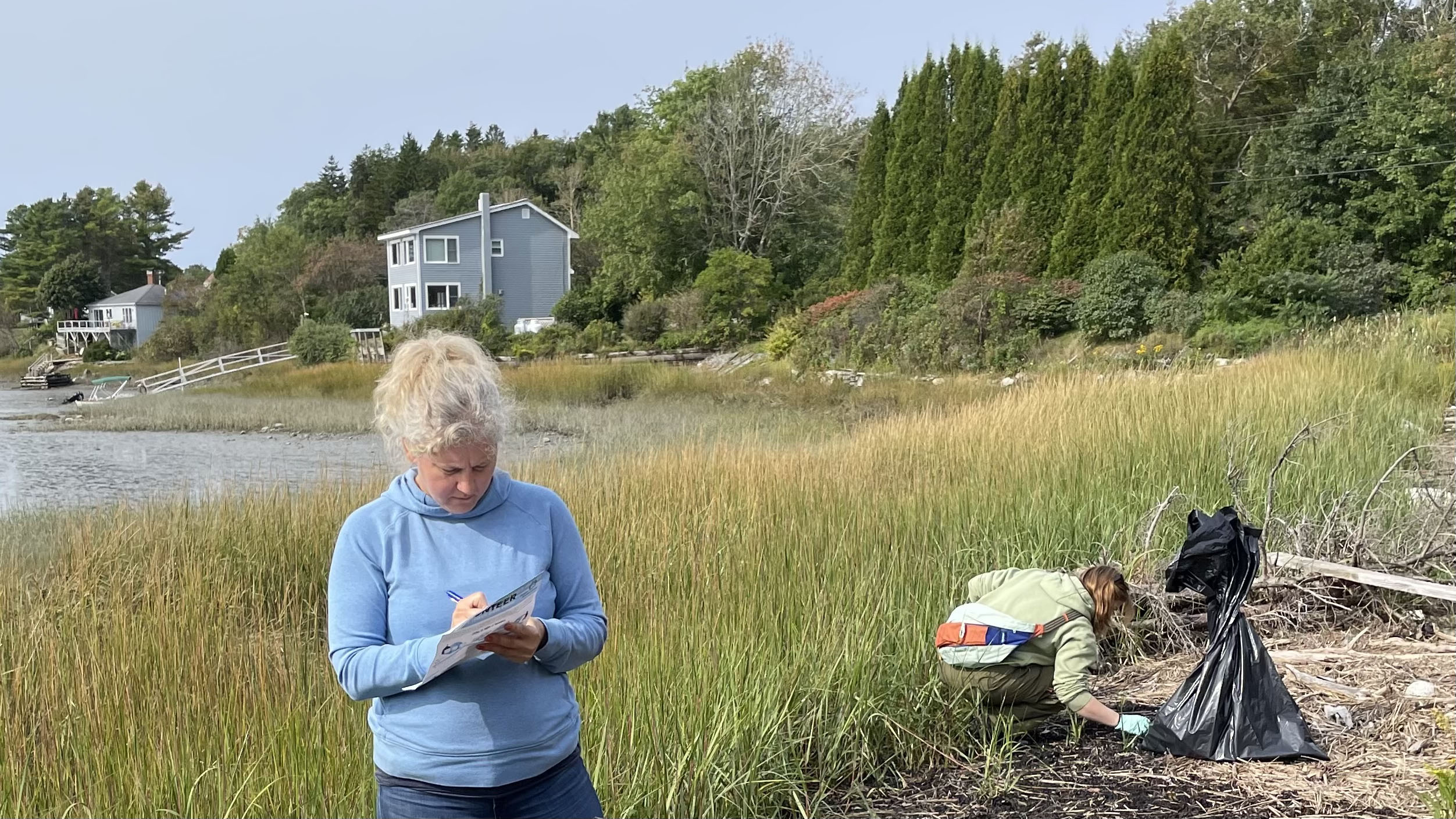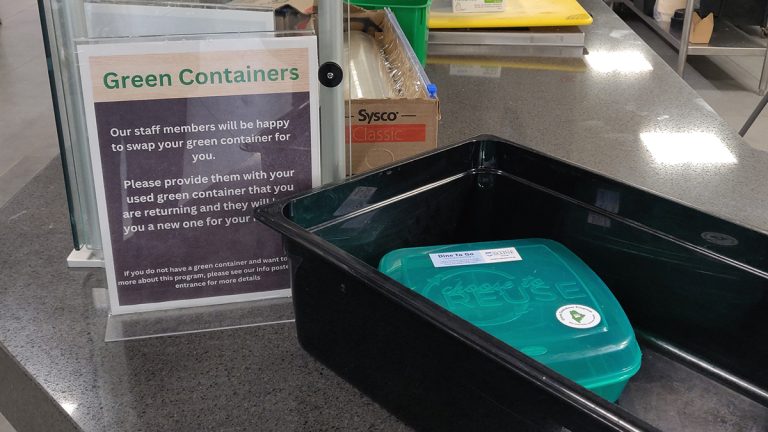
Chyanne Yoder: Turning the tide on disposable food containers
Chyanne Yoder seeks to prevent plastic pollution at its source by piloting systems for reusable food containers in Maine coastal communities, reducing the need for single-use foodware.
The Ph.D. student in anthropology and environmental policy at the University of Maine is championing this cause through the Marine Debris Project alongside her adviser, University of Maine Professor of Anthropology and Climate Change Cindy Isenhour. The project, which is funded by the National Oceanic and Atmospheric Administration (NOAA)’s Marine Debris Challenge grant through Maine Sea Grant, seeks to protect Maine’s delicate ocean ecosystems and the health of its coastal communities.

Yoder’s background in medical and environmental research makes her well-suited to studying plastic pollution. “Plastic production is very much a health issue as much as it is an environmental one,” Yoder said. Chemicals used in plastic production often leach into the environment and pose numerous health risks once absorbed into the body.
Plastic pollution poses a dangerous risk to marine environments, including Maine’s expansive coastlines. A study led by another UMaine graduate student, Grace Johnson, found an estimated 400 billion microplastics in the waters surrounding Bar Harbor and Acadia National Park. In total, her research detected 1.8 plastic fibers per liter of water.
Roughly fifteen percent of plastic waste cleaned up along Maine’s shores comes from foodware. Yoder’s project aims to squash this source of pollution by supporting coastal communities’ efforts to rethink reliance on disposable take-out food packaging. Through close collaboration with local restaurants, municipal representatives, and community partners, the team is working to develop a sustainable model for returnable food containers, which became legal in Maine last year, opening up new avenues of reuse. The research team hopes the project will create models that can inform reusable transitions across Maine.
Yoder and the Marine Debris Project team of multidisciplinary researchers are collaborating with three coastal towns — Bath, Bar Harbor and South Portland. The towns were chosen because they are coastal, feature a wide range of geographies and host a variety of tourism-dependent food services. This summer, Yoder and her collaborators are gathering data and surveying local businesses to determine capacity and need by evaluating current practices and costs associated with disposable packaging. They are also meeting with the towns to help them prepare to switch to reusables starting in September of this year.
There are many potential models for implementing the returnable containers. Each has its benefits and drawbacks. Recognizing this, Yoder’s team plans on being responsive to individual businesses’ needs and resources. One model, known as a deposit model, sees containers lent for a small fee, which is refunded when the container is returned. The city of Freiburg, Germany, launched a deposit program in 2016 called Freiburg Cup, which has now partnered with 90 businesses to promote the circulation and reuse of coffee cups.

The benefits of the program span environmental and economic concerns. Reusable packaging is known to reduce waste and save businesses and municipalities money.
“While initial investments are usually needed to transition to reusable products, cost savings are usually realized within only a few months,” Yoder said, citing “Reuse Wins,” a report published by the nonprofit Upstream that details reusables’ cost savings.
While the pilot programs will last approximately four months, Yoder hopes that coastal communities will continue working towards reusable systems that reduce marine debris.
Plastic pollution is a large concern for the future of Maine’s health. To prevent the impact of toxic plastic chemicals on both humans and wildlife, towns must act to stop marine debris at its source.
Contact: Erin Miller, erin.miller@maine.edu
Written by Jesse Bifulco, Communications Intern
